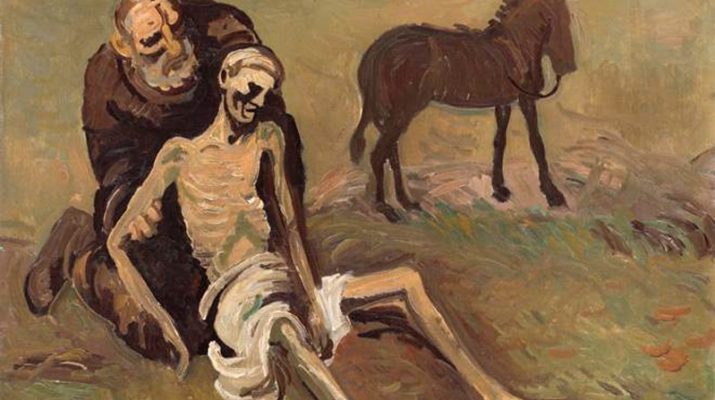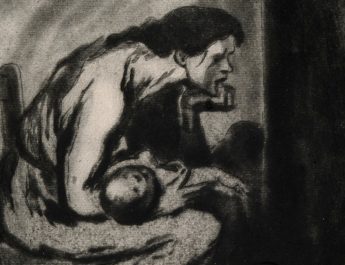“But a Samaritan while traveling came near him; and when he saw him, he was moved with compassion. He went to him and bandaged his wounds, having poured oil and wine on them. Then he put him on his own animal, brought him to an inn, and took care of him.” – Luke 10:33-34
Few phrases break my heart more than this: “I have learned from my enemies.” So often, the sentiment arises from people who have suffered injustice, abuse, oppression – their idealism and optimism stripped away from seemingly unending encounters with those who cause harm. They work to make things better, but see no progress. They try to work within the framework of love, hope, compassion – but find their own softness turned against them like a blade. And so, after monumental struggle, they set their faces on a new path. They learn from their enemies to fight back, stroke for stroke, word for word, harm for harm.
We cannot help but by impacted by the chronic stress and strain, uncertainty and fear of these days. Often, we speak of this as a time of trauma. This word “trauma” comes from the Greek, meaning “a wound” – it is the same word used in verse 34 above. Whether we think from a medical or psychological prospective, we can start to comb through what it means to be wounded so regularly, to have vulnerable places crushed, ripped, burned, worn down.
For years, I have struggled with PTSD – a condition that rewires your brain to search for dangers; to survive, perhaps, no matter the cost. Not everyone who faces trauma gets PTSD, but everyone who faces trauma is changed by it. How our wounds heal has a lot to do with how we treat them. Can we stop what is wounding us? Can we find someone with oil and wine to help us bandage them? Can we get away to an inn, a safe haven where we can remake, restore, rebuild as we are able? Or are we trapped, beaten and bloody by the side of the road? Are we attacked once again or ignored? One of the major questions of making it through trauma becomes: what do I learn from my enemies?
Being traumatized can feel embattled, lonely, impossible. Regardless of one’s resilience, the sense of powerlessness can be overwhelming. Experiencing flashbacks, hypervigilance, sudden mortal terror – none of this is a choice. It is far easier to let your heart harden as part of your newly forming armor than it is to fight for it to remain soft. Yet, that softness remains a crucial reminder of who we were before, who we hoped to be. That softness that can still laugh, can still hope, can still remember unencumbered love – it must be ours to claim and cherish in order for us to do more than survive.
To understand Jesus’s parable, we need to remember that both the Samaritans and the Jews were oppressed peoples and they had good reason to hate and fear one another. Yet, the Samaritan was still moved with compassion. He felt in his gut that this wounded stranger needed a loving hand to find the healing he needed. What do we learn from enemies? Do we learn to continue in hate and harm or do we stand up for Love as safely as we can?
Being traumatized…you might assume that your compassion and love are necessary victims on the altar of grief. Though it is the harder road to walk by far, choosing this softness is a way to take back a measure of control. Making it through trauma is partly about deciding what you will fight for, what you will work to restore, what matters the most to who you are, and who you will be.
Choose love, though hate seems more powerful. Choose love, though it seems impossible. Choose love, though few know how it can seem to scrape against all that was torn from you. Step away, be somewhere safe, but do not give up on the power of a heart aglow in love.
Image Credit: “Merciful Samaritan” by Cyprian Majernik, 1940.




